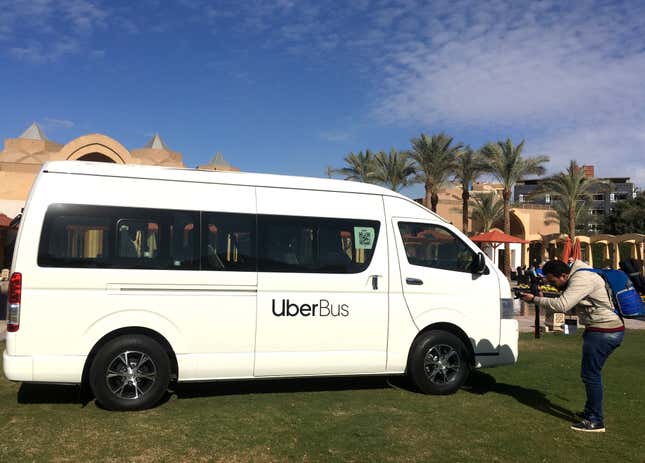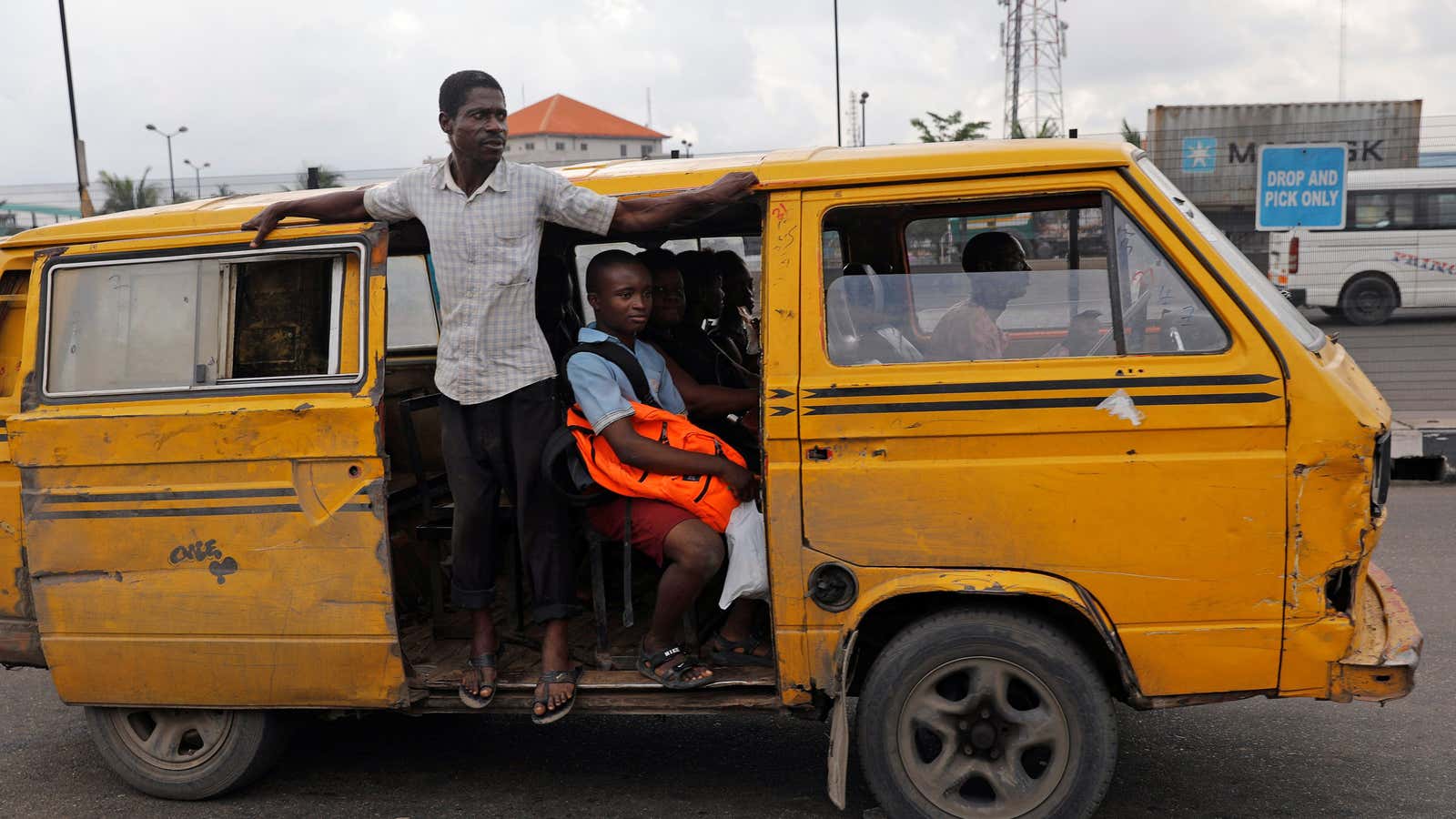Uber is hoping to expand its imprint on public transpiration in Africa’s largest city.
The ride-hailing firm is working on plans to help develop a bus system for Lagos, a gridlocked metropolis with over 20 million people. Company representatives have met with transport officials from the city, toured the terminals of the newly-launched smart city buses, and discussed plans for collaboration, Uber’s general manager for sub-Saharan Africa Alon Lits confirmed to Quartz Africa on the sidelines of the World Economic Forum in Cape Town.
In June, Uber’s chief business officer Brook Entwistle visited the city and met with the Lagos state governor Babajide Sanwo-Olu. Any plans would require full approval and colloboration by the state government which is known for its proclivity for bureaucratic control.
The moves are indicative of Uber’s plan to become the “Amazon” for transportation and tap into riders’ preferred mobility options. It’s also part of a strategy to add into its array of locally-popular forms of motorized transport, given the roll-out of boda-boda motorcycles in cities like Kampala, three-wheeled tuk-tuks in Dar es Salaam, or quick-trip, low-cost options on fuel-efficient vehicles in Nairobi. The e-hailing firm has also been partnering with transit agencies in cities to expand transportation access, decrease car ownership, and reduce congestion.
The bus options offer a “huge opportunity,” Lits said, given millions of people across the continent use them to move on a daily basis. In Lagos, about 80% of total daily passenger trips as of 2015 were made by public transport dominated by buses.
One option Uber could consider for the city is to offer real-time transit information and cashless ticketing on the Lagos Bus Services, allowing riders to plan their journeys and buy tickets. Traffic is a major challenge in Lagos with inadequate traffic guidance, bad roads, and unruly drivers making it all the worse. The city also does not yet have a modern light railway system for regular commuters though it is building one.
“I think the bus will prove to be a game-changer for Lagos and is obviously very much needed,” Lits said. He also added city officials were “excited” by the prospects of partnership. “It is a longer-term engagement but it is something we are willing to do and I think grateful for the willingness on the other side.”
The ride-hailing giant has launched similar experiments in cities including Denver, where commuters can buy, book and pay for bus and train rides using an in-app ticketing service

Six years after launching in Africa, Uber has been constantly adapting its business models to the needs of local markets amid competition from rivals. For example African cities, led by Nairobi and Lagos, played a key role in driving Uber’s global strategy around cash. Last December, the San Francisco-based company launched its first bus service globally in Cairo: another traffic-clogged city where local firm SWVL was already using technology to help customers reserve seats on clean, air-conditioned, and high-quality buses.
After raising about $80 million in the past two years, SWVL has now expanded to Kenya and Pakistan and is looking to move into Nigeria, South Africa, and Côte d’Ivoire, chief executive Mostafa Kandil recently told Quartz. In Kenya, Safaricom-backed Little also launched a bus service to bring order to the unruly public matatu buses.”
Sign up to the Quartz Africa Weekly Brief here for news and analysis on African business, tech and innovation in your inbox
